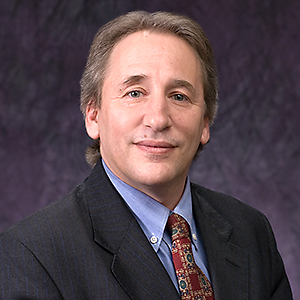Eric Hershberg – Obama´s visits: Late is better than never
By Eric Hershberg, Director of CLALS, American University, Washington D.C.
President Barack Obama’s historic visit to Havana – the first by an American president in nearly 90 years – affords an opportunity to cement and extend advances already achieved as a result of his administration’s decision to replace a failed 55-year old policy of confrontation with Cuba with one of conciliation and dialogue. The administration is also acting purposively by coupling the trip with a high profile visit to Argentina, where newly elected center-right President Mauricio Macri represents for Washington an emerging South American trend away from leftist administrations whose relationship with the U.S. was often one of mutual suspicion, if not outright recrimination. If the opening to Cuba conveyed a message to all Latin Americans, and indeed the world, that the United States would abandon a policy held in near universal contempt, the visit with Macri reinforces a message that Obama has pushed consistently ever since gaining plaudits for the Cuba move: not only does the United States wish not to be seen as an arrogant force in the region, it actually wants to strengthen governments that are favorably disposed to partnerships with Washington. That message matters, for whereas the first decade and a half of the 21st century was for the most part discouraging to observers hoping for a fundamentally new U.S. approach to Latin America, both the opening to Cuba at the end of 2014 and a number of subsequent developments give reason for guarded optimism.
The President’s stop in Havana will rightly occupy most attention from the media and the general public. His meetings with President Castro and others in Cuba will highlight achievements to date and establish concrete objectives for the remainder of his administration. The two presidents can use this as an occasion to pressure their respective bureaucracies to sustain and indeed accelerate progress achieved to date. That is essential, given that neither will be in office for long and both are cognizant of the resistance to normalization that continues to foster antiquated rhetoric and dilatory actions of senior officials in key government agencies in both countries.
U.S. and Cuban diplomats have made important strides since the surprise announcements of 17 December, 2014: the re-opening of embassies in both countries; removal of Cuba from the State Department’s list of countries supporting terrorism; establishment of postal service, direct commercial air service and maritime travel; and agreements on counter-narcotics cooperation. Already, American citizens by the tens of thousands are taking advantage of liberalized regulations to travel to Cuba and explore myriad opportunities for cultural, educational and commercial exchange. New regulations issued on the eve of Obama’s visit do away with the most cumbersome restrictions on U.S. citizens wishing to travel to Cuba: by licensing as “people to people exchange” virtually any trip to Cuba by an American citizen, the administration has blown a massive hole in the component of the embargo that limited U.S. tourism. To be sure, given strong opposition to Obama’s policies in the U.S. Congress, the embargo remains in force, and poses significant impediments for the Cuban economy and for U.S. investment and trade, but a succession of regulatory reforms have diminished dramatically the barriers and adjusted American rules to the realities of interactions with a country whose institutions remain resistant to reforms.
Although clearly not as historic, Obama’s trip to Buenos Aires conveys a strong signal of U.S. interest in engaging Latin America and the kinds of interlocutors it prefers. Relations with the Kirchner administration had deteriorated, not particularly because of the dispute with the infamous vulture funds – the administration actually was privately sympathetic if powerless to advance the Argentine position vis a vis the hold out hedge funds — and the visit will broadcast the degree to which both Obama and Macri hope to advance common objectives without the irritant of anti-American hyperbole from Buenos Aires. Observers in Buenos Aires anticipate that the presidents’ conversations will result in joint declarations regarding trade, private investment in Argentina, and shared concerns about challenges to democratic institutions and human rights in several countries in the region.
While the visit to Argentina is occasioned by the arrival to power of a center right leader favorably disposed toward Washington, it should not be read primarily as a slap in the face to the Latin American left (though some in the U.S. bureaucracy and media see it that way). Rather, the administration should frame the discussions in the context of an array of constructive overtures toward Latin America over the past year. During this period, the White House has hosted high profile and positive visits with the Presidents of Mexico, Colombia and Brazil, and gained Congressional approval for a $750 million aid package to support economic development and security in beleaguered Northern Triangle of Central America. And with the Executive actions put forth in November, 2014, the administration demonstrated a concerted effort to achieve a humane and rational solution to the predicament faced by millions of undocumented Latin American citizens residing in the United States. These are the sorts of messages that we might have wished to have seen during the first six years of Obama’s government, but as the saying goes, late is better than never. Those messages can and should provide a foundation for the Latin American strategy of President Hillary Rodman Clinton who, barring unlikely developments that would be catastrophic for the U.S. and beyond, will move into the White House in January 2017, with an opportunity to build on achievements bequeathed to it by an administration that is poised to leave office on a high note.
Continue Reading our Special Dossier: Obama in Cuba and Argentina

